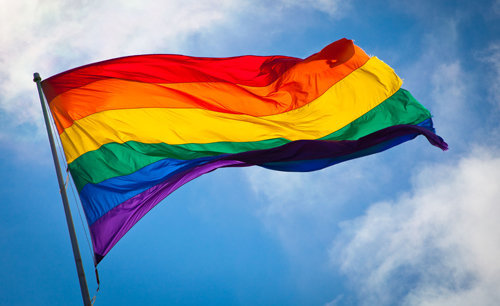Following Historic Speech, Working to Realize the Promise of LGBT Equality Under the Law


President by infusing his second inaugural address with a clarion call for LGBT equality under the law. First, he linked the equality struggles for women’s rights, African American civil rights, and LGBT rights through the eloquent statement that:
We, the people, declare today that the most evident of truths — that all of us are created equal — is the star that guides us still; just as it guided our forebears through Seneca Falls, and Selma, and Stonewall…
Next, he became the first president in American history to use the word “gay” in reference to gay men and lesbians in an inaugural address, declaring:
Our journey is not complete until our gay brothers and sisters are treated like anyone else under the law — for if we are truly created equal, then surely the love we commit to one another must be equal as well.
This is a remarkable statement that would not have been imaginable even four years ago, let alone during those days in New York City in late June 1969 when members of the LGBT community had finally had enough and fought back at the Stonewall Inn against the nightly indignities of raids and abuse at the hands of the police. How far we’ve come in less than 50 years is awe-inspiring. Monday’s historic inaugural address provided an opportunity to both reflect on the achievements of the past, as well as look ahead to the coming years and the potential they hold for further gains for basic fairness and equality under the law for those who are LGBT. As Chris following Monday’s inaugural festivities, much remains to be accomplished and the work now continues.
At the ACLU, we recently presented the White House with recommendations on ways to address a wide range of pressing civil liberties issues, including in the area of LGBT rights. A top first 100 days recommendation is for President Obama to sign an executive order to prohibit companies that receive contracts from the federal government to discriminate on the basis of sexual orientation or gender identity. The significance of such an executive order is tremendous, and represents the single most important step that President Obama could take over the next four years on his own to eradicate LGBT discrimination in America’s workplaces.
It has been estimated that this executive order would cover a fifth of the entire U.S. labor force, and, with federal contractors employing people in all 50 states, would ensure that there were with legally binding protections against discrimination on the basis of sexual orientation or gender identity.
In addition, related to the linkages between movements for equality in President Obama’s inaugural address, this executive order would reaffirm a commitment to non-discrimination with federal funds first made by President Roosevelt more than 70 years ago when he signed an executive order, the first national victory of the modern civil rights movement, integrating the nation’s shipyards and other worksites run by defense contractors. In subsequent executive orders, President Roosevelt covered all federal contracts, including non-defense contracts, and Presidents Truman, Eisenhower, Kennedy, and Johnson expanded the protections.
Just as civil rights for African Americans are important components to the legacies of Presidents Kennedy and Johnson, history will likely reflect the gains made for basic fairness and equality under the law for those who are LGBT as key to the legacy of President Obama. The next four years provide a critical opportunity to cement and further this legacy. As President Obama’s second terms gets underway in earnest, this work begins anew.
Learn more about LGBT rights: Sign up for breaking news alerts, , and .

